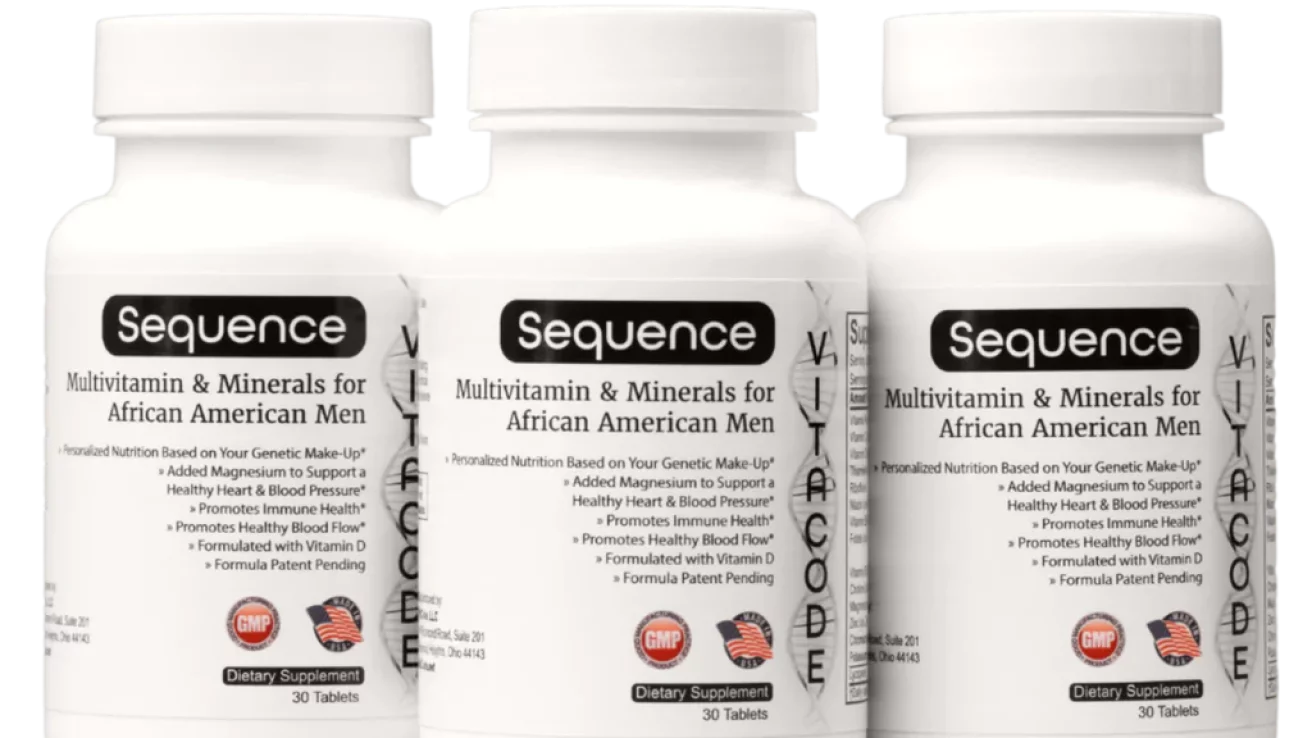In this MD Newsline exclusive interview with internal medicine physician Dr. Greg Hall, we discuss Dr. Hall’s development of Sequence Multivitamins for African Americans. We also discuss how Sequence Multivitamins are different from some of the other leading multivitamin brands.
MD Newsline:
What findings from clinical practice and medical research influenced your decision to develop multivitamins specifically for African Americans?
Dr. Greg Hall:
“In my research for my book, Patient-Centered Clinical Care for African Americans: A Concise Evidence-Based Guide to Important Differences and Better Outcomes, I learned over half of the content in the book from researching it. Some of the content I knew from my practice—like medication differences in treating hypertension in African Americans—but I wasn’t aware that research had been done in these areas.
For example, I knew about vitamin D differences in African Americans and how vitamin D was dramatically low in African Americans—sometimes 8 or 9 ng/mL. But I learned about other differences, too, like how African Americans have slight differences in their thyroid labs, including a slightly low TSH. Or, they may have benign ethnic neutropenia: a slightly low WBC around 3,000 WBC/mL. I see that all the time in my patients, and now, I know it’s just benign. I don’t send them for a bone marrow biopsy.
Some other differences I noted: African Americans tend to be low in vitamin C, magnesium, potassium, and zinc. So, I designed Sequence Multivitamins to include what we need as African Americans. I also learned that Africans and their descendants have a downregulated ability to absorb zinc.
Our bodies developed this adaptation so as not to absorb as much zinc as there was in the environment—which, in Africa—is present in large quantities in the soil and the water. Then, once we were displaced to another continent that wasn’t as high in zinc, that’s how we developed zinc deficiency. And zinc deficiency is linked to a higher risk of infections and aggressive prostate cancer.
And then, I came across evidence that vitamin E was associated with an increased risk for aggressive prostate cancer. So, I said, well, even though the association is just an association, African Americans don’t need any extra vitamin E. So I decided to leave vitamin E out of Sequence Multivitamins until the controversy over its association with prostate cancer is solved.
The same thing was true with selenium and even some of the B vitamins. And there’s no evidence of vitamin E deficiency or selenium deficiency in African Americans.
So, I made Sequence Multivitamins to be tailored to what African Americans need and don’t need. For example, it gives you 2,000 IU of vitamin D and 400 mg of vitamin C a day. In the Sequence Multivitamin for men and women over 50, I included more zinc and more magnesium to help address this population’s higher risk of infection, prostate cancer, diabetes, etc.
In short, Sequence Multivitamins address the unique nutritional needs of African Americans and are especially relevant now, during the pandemic, when many of my patients were already supplementing with higher levels of vitamin D, vitamin C, and zinc.”
MD Newsline:
What makes Sequence Multivitamins different from some of the other leading multivitamin brands?
Dr. Greg Hall:
“What makes the Sequence Multivitamin different from the other multivitamin brands is what it doesn’t have in it. I couldn’t find a multivitamin that didn’t have vitamin E and didn’t have selenium. Sequence Multivitamins don’t have vitamins or minerals in them, like these two, that could increase the risk of lung cancer or prostate cancer.
I wanted to make sure my multivitamin had the appropriate amounts of the vitamins and minerals that African Americans need, such as vitamin D, vitamin C, magnesium, and potassium. African Americans tend to have lower magnesium and potassium. I see it all the time. Interestingly, increased magnesium helps decrease the risk of diabetes, which is very high in African Americans.
So magnesium, potassium, the right amount of vitamin D, a little higher vitamin C, and no vitamin E or selenium—that’s what makes Sequence Multivitamins different.”
Responses have been condensed and lightly edited.










